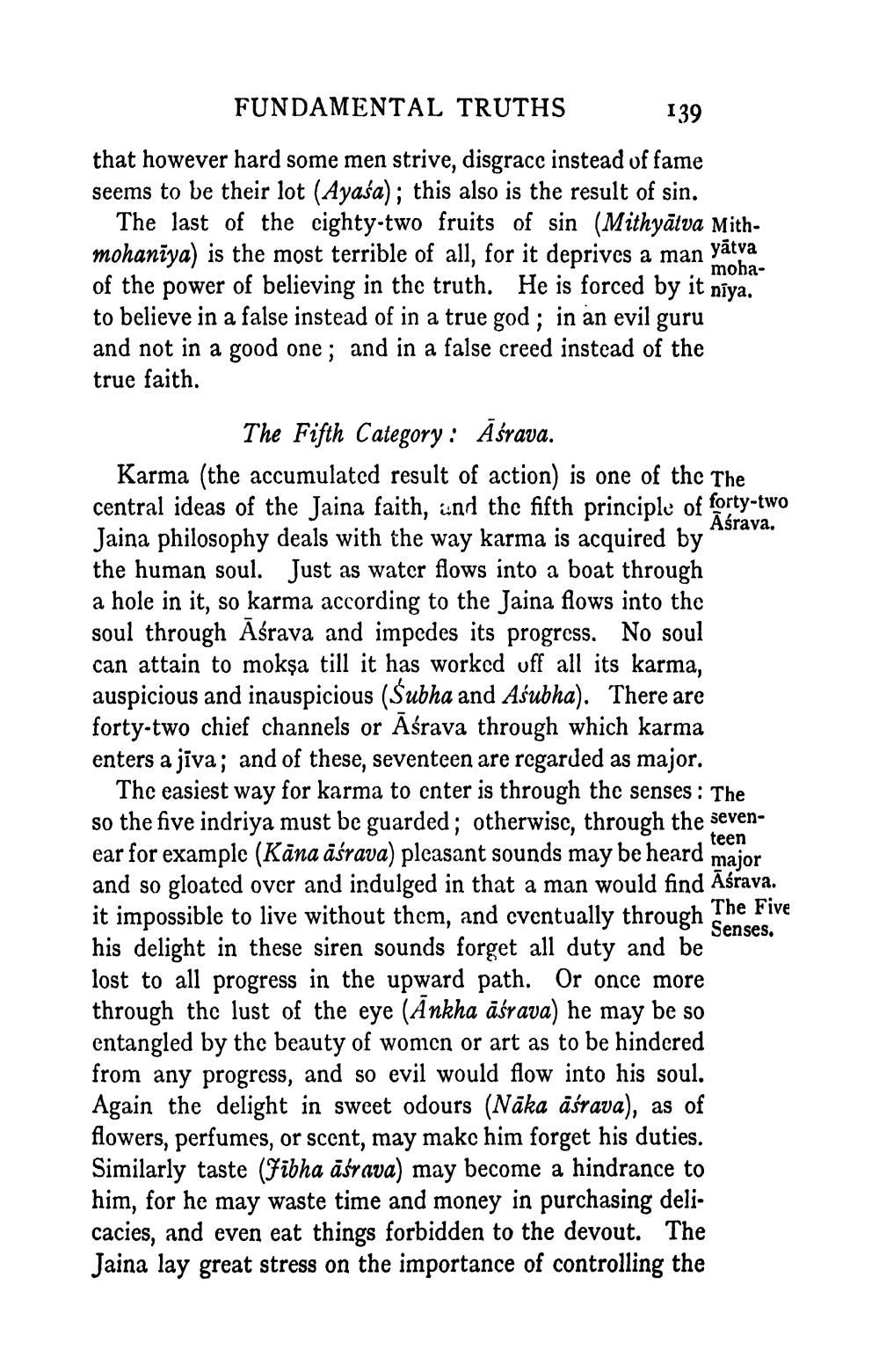________________
FUNDAMENTAL TRUTHS
139
that however hard some men strive, disgrace instead of fame seems to be their lot (Ayasa); this also is the result of sin.
moha
The last of the eighty-two fruits of sin (Mithyātva Mithmohaniya) is the most terrible of all, for it deprives a man yātva of the power of believing in the truth. He is forced by it niya. to believe in a false instead of in a true god; in an evil guru and not in a good one; and in a false creed instead of the true faith.
The Fifth Category: Aśrava.
Karma (the accumulated result of action) is one of the The central ideas of the Jaina faith, and the fifth principle of forty-two Jaina philosophy deals with the way karma is acquired by the human soul. Just as water flows into a boat through a hole in it, so karma according to the Jaina flows into the soul through Āśrava and impedes its progress. No soul can attain to mokşa till it has worked off all its karma, auspicious and inauspicious (Subha and Asubha). There are forty-two chief channels or Aśrava through which karma enters a jīva; and of these, seventeen are regarded as major.
teen
The Five Senses.
The easiest way for karma to enter is through the senses: The so the five indriya must be guarded; otherwise, through the sevenear for example (Kāna āśrava) pleasant sounds may be heard major and so gloated over and indulged in that a man would find Aśrava. it impossible to live without them, and eventually through his delight in these siren sounds forget all duty and be lost to all progress in the upward path. Or once more through the lust of the eye (Ankha āśrava) he may be so entangled by the beauty of women or art as to be hindered from any progress, and so evil would flow into his soul. Again the delight in sweet odours (Nāka āśrava), as of flowers, perfumes, or scent, may make him forget his duties. Similarly taste (Fibha aśrava) may become a hindrance to him, for he may waste time and money in purchasing delicacies, and even eat things forbidden to the devout. The Jaina lay great stress on the importance of controlling the




